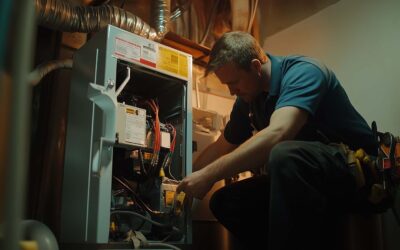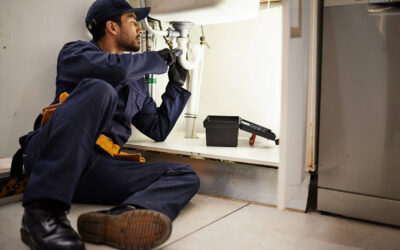Electricity is a fundamental part of modern homes, powering everything from lights and appliances to computers and televisions. While it brings immense convenience and benefits, electricity can also pose serious safety risks if not managed properly. Electrical fires, shocks, and other hazards can occur due to improper use, outdated systems, or faulty installations. In fact, the National Fire Protection Association (NFPA) reports that electrical failures or malfunctions are the second leading cause of home fires in the United States. To ensure your home remains safe and your family protected, follow these essential electrical safety tips.
Understand Your Home’s Electrical System
Know Your Electrical Panel
The electrical panel controls all the electrical circuits in your house. Each circuit has a circuit breaker, which protects it by tripping off when too much electricity flows through it, preventing overheating and potential fires. Familiarize yourself with the panel’s layout to quickly shut off power to a particular area when needed. Label each breaker clearly with the area of the home it corresponds to, which can be invaluable in emergencies or when doing repairs.
Regular Inspections
Hiring a qualified electrician to inspect your electrical system every few years is crucial, especially if your home is old or you’ve recently moved in. These inspections can uncover hidden issues such as outdated wiring techniques like knob-and-tube or aluminum wiring, improper connections, or overloaded circuits. Regular checks ensure that your electrical system conforms to current safety standards and can help prevent dangerous malfunctions.
Upgrade When Necessary
Consider upgrading your electrical panel or wiring if your home has outdated or insufficient electrical infrastructure. Older homes may not be equipped to handle modern electrical loads, leading to frequent breaker trips, flickering lights, and potentially hazardous conditions. An upgraded system increases safety and enhances the overall efficiency of your home’s electricity usage.
Prevent Overloads
Understand Circuit Loads
It’s important to know the capacity of each circuit in your home and ensure that the combined load of all devices and appliances on a single circuit does not exceed this. Overloaded circuits are a primary cause of breaker trips and can pose a fire risk. Consider spreading high-wattage appliances across multiple circuits or installing additional circuits if necessary.
Use Surge Protectors
Surge protectors are essential for safeguarding your home electronics and appliances from voltage spikes that can occur due to sudden changes in power supply or nearby lightning strikes. The Insurance Information Institute notes that losses from lightning strikes, including surge damage, accounted for over $900 million in insured losses in 2022 alone. These devices help to absorb excess electrical energy and prevent it from reaching connected devices, thus protecting them from damage.
However, it is important to note that cord/power strip style surge protectors offer minimal to no surge protection. A whole home surge protective device SPD installed at the panel by a licensed electrician comes with significant warranties protecting the electronics in the home. SPDs have been required at the panel since the 2020 code cycle took effect and remain a code requirement for all new homes and businesses.
Appliance Awareness
Be aware of appliances’ electrical demands, particularly large ones like air conditioners, dryers, and refrigerators. To prevent overloads, avoid running multiple high-energy-consuming appliances simultaneously on the same circuit.
Manage Cords and Outlets
Check Cord Condition
Regularly inspect the cords on your appliances and electronics. Look for frayed wires, loose connections, or signs of wear. If damage is found, repair or replace the cord immediately to prevent shocks or fires.
Safe Plug Use
Ensure that all plugs fit snugly into outlets. Loose plugs can create sparks and cause an electrical fire. Never force a plug into an outlet if it doesn’t fit.
Smart Extension Cord Use
Extension cords should only be used temporarily. They should not be run under carpets or across doorways, where they can be damaged, and they should not be overloaded with more appliances than they are rated to handle.
Fire Safety Measures
Install Smoke Detectors
Ensure you have functional smoke detectors installed on every level of your home, particularly outside sleeping areas and the kitchen. Test them monthly to ensure they are working correctly, and replace batteries annually or as needed. Consider interconnected smoke detectors, which all go off if one detects smoke, ensuring you are alerted no matter where you are in your home.
Keep Fire Extinguishers Handy
Equip your home with fire extinguishers on each level, especially near the kitchen and garage. Opt for extinguishers rated for electrical fires (Class C), and ensure all family members know how to use them properly. Regularly check the expiration date and pressure levels to ensure they are ready for use when needed.
Electrical Fire Escape Plan
Create and practice an escape plan in case of an electrical fire. Identify safe exits from all rooms and ensure that all family members know two ways to escape from each area of the home. Designate a meeting spot outside where everyone can gather after escaping, and ensure that children understand the importance of never hiding during a fire.
Safe Appliance Use
Follow Manufacturer Instructions
Every appliance comes with a manufacturer’s manual that includes specific instructions on using and maintaining the device safely. It’s essential to follow these guidelines to ensure the appliance operates within the safe limits the manufacturer sets. Using appliances in ways they were not intended can lead to malfunctions and increase the risk of fire or electrical accidents.
Appliance Maintenance
Regular maintenance is crucial to ensure appliances continue to operate safely and efficiently. This includes tasks like cleaning lint traps in dryers, checking refrigerator coils for dust buildup, and inspecting cords for wear and tear. Appliances that generate heat, like toasters and space heaters, should be kept away from flammable materials and should not be left running unattended.
Proper Ventilation
Appliances that produce heat or use combustion, such as gas stoves or clothes dryers, should be properly ventilated. This prevents overheating and the accumulation of potentially harmful gases inside your home. Ensure that ventilation systems are clear of obstructions and that exhaust vents are free from lint, dust, and debris.
Child and Pet Safety
Tamper-Resistant (TR) Outlets
Tamper-resistant outlets have a spring-loaded cover plate that seals off the contacts of the electrical receptacle. This design prevents children or pets from inserting foreign objects into the outlet, reducing the risk of shock. A study by the CPSC found that each year, nearly 2,400 children suffer severe shock and burns when they stick items into the slots of electrical receptacles, totaling nearly seven children a day. Installing TR outlets throughout your home is a simple measure that significantly increases safety for curious toddlers and pets.
Secure Loose Wires and Cords
Loose electrical cords can be a tripping hazard and are also tempting for children to pull on or for pets to chew. Use cord organizers to keep cables bundled and secure them away from the edges of furniture. Consider using cord covers to protect and conceal floor-running cords. Regularly inspect cords for any damage and replace them if necessary to prevent accidental shocks.
Cover Unused Outlets
Use safety covers on all unused electrical outlets for additional protection, particularly in households with small children and pets. These covers prevent direct contact with the outlet and are often designed to be difficult for children to remove.
Plan for Emergencies
Emergency Contacts
Keep a list of emergency contact numbers, including a trusted electrician, the local fire department, and your utility company’s emergency line. These contacts should be accessible to all family members. Consider programming them into your phone and keeping a physical copy in a common area like the kitchen.
Understand Electrical Shutoffs
Every member of the household should know how to turn off the main electrical power, especially in emergencies like floods, which can pose electrocution risks if water comes into contact with electrical systems. Practice the steps to shut off electricity at the main panel.
Emergency Kit
Prepare an emergency kit that includes basic supplies such as flashlights, batteries, a first-aid kit, non-perishable food, water, and blankets. Store the kit in an easily accessible location. This kit is crucial during a power outage or if you must evacuate your home quickly.
Ensuring Home Safety with Professional Expertise
By following these essential tips, you can create a safer living environment. However, while DIY measures are important, the complexity of home electrical systems often requires professional attention. This is where Steel T Home Services excels.
At Steel T Home Services, we understand the intricacies of home electrical safety and are dedicated to providing you with the highest level of service. Our team of certified electricians is equipped to handle all your electrical needs, from routine inspections to emergency repairs. Trust us to help you ensure that your electrical systems are efficient, up to code, and safe. Contact Steel T Home Services today to schedule an inspection or to learn more about our comprehensive electrical services, and rest easy knowing your home is in good hands.
Steel T Home Services is Denver's choice for HVAC, plumbing & electrical needs. With over 40 years of experience in serving our valued customers’ needs, Steel T is committed to providing unparalleled comfort to your home.



